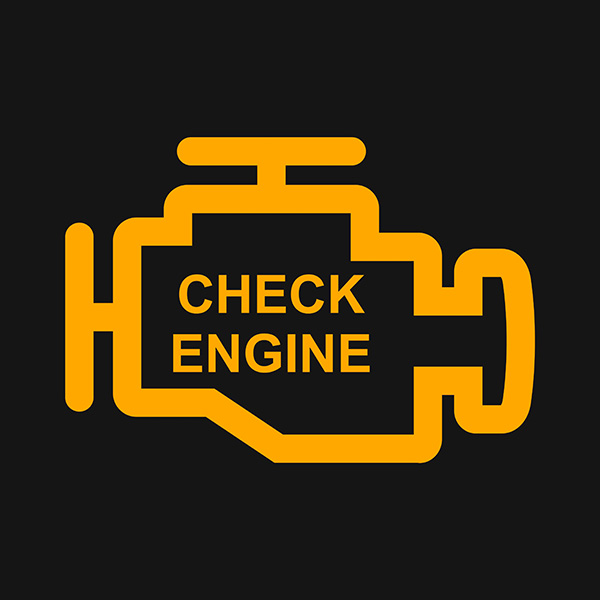
Seeing your check engine light turn on is enough to make any driver uneasy. But if it starts flashing, that’s a different story and a much more urgent one. A flashing check engine light typically indicates that your engine is misfiring severely, which can cause significant damage to your catalytic converter and other components if you continue to drive.
If you've noticed this warning light blinking on your dashboard, here’s what it means and what steps you should take right away.
What a Flashing Check Engine Light Really Means
Unlike a solid check engine light, which often signals a less urgent problem like a loose gas cap or a faulty sensor, a flashing light points to an active and potentially dangerous issue. In most cases, it's a sign of a severe engine misfire. When one or more cylinders fail to ignite properly, it sends unburned fuel into the exhaust system.
This unburned fuel can overheat your catalytic converter, a key emissions component designed to reduce harmful gases. Damage to this part can be costly and may even prevent your vehicle from passing emissions inspections. That’s why it’s crucial to act quickly.
Common Causes of a Flashing Check Engine Light
While a diagnostic inspection is necessary to pinpoint the exact cause, here are some of the most common culprits behind a flashing light:
- Ignition system problems like worn spark plugs, bad ignition coils, or faulty plug wires
- Fuel delivery issues such as a failing fuel injector or clogged fuel filter
- Vacuum leaks that affect the air-fuel mixture
- Low compression in one or more cylinders
- Sensor failure, including the camshaft or crankshaft position sensor
Often, one issue triggers a chain reaction, making early diagnosis and repair essential.
What to Do If Your Check Engine Light Starts Flashing
The moment you see the light flash, you should stop driving as soon as it’s safe to do so. If you're on the highway or in traffic, pull over and turn off the engine. Continuing to drive could worsen the damage, increase repair costs, or even lead to a breakdown.
If the engine is running rough, shaking, or making odd noises, it’s best not to restart it until it's been inspected. Call for roadside assistance or a tow service to have your vehicle brought to a qualified repair facility.
Driving even a few extra miles in this condition could damage components like the pistons, valves, or catalytic converter.
Can You Reset the Light Yourself
Some drivers try to clear the check engine light by disconnecting the battery or using a code reader. While that might turn the light off temporarily, it won’t fix the underlying issue. If the cause is still present, the light will come back, and your engine could still be at risk.
Resetting the code without addressing the problem also erases helpful diagnostic data that a technician could use to speed up the repair process. It’s always better to have a proper scan and inspection done first.
Preventing Future Flashing Check Engine Lights
While you can’t prevent every issue, there are steps you can take to reduce your chances of seeing this warning again:
- Stick to regular maintenance intervals, especially for spark plugs, coils, and fuel filters
- Use high-quality fuel and oil that meets your vehicle’s specifications
- Avoid ignoring small issues that could turn into bigger ones
- Pay attention to engine performance and fuel economy
Even something as minor as a stutter on acceleration could be an early warning sign.
Your Next Move: Get a Diagnostic Inspection
If your check engine light has started flashing, time is not on your side. The longer you wait, the more damage you risk doing to your engine or emissions system. A professional diagnostic inspection will determine the cause and guide the repair process, getting your vehicle back on the road safely.
Check Engine Light Repairs in Bear, DE at Fox Run Auto
At Fox Run Auto in Bear, DE, our technicians can quickly identify the source of your check engine light and determine whether it’s something minor or a sign of more serious trouble. We use state-of-the-art diagnostic equipment to read the codes, evaluate your engine’s performance, and recommend the right fix. Whether your car needs new spark plugs, a sensor replacement, or something more complex, we’ve got you covered.
Schedule an inspection today and drive with confidence, knowing your vehicle is in the hands of experienced professionals.